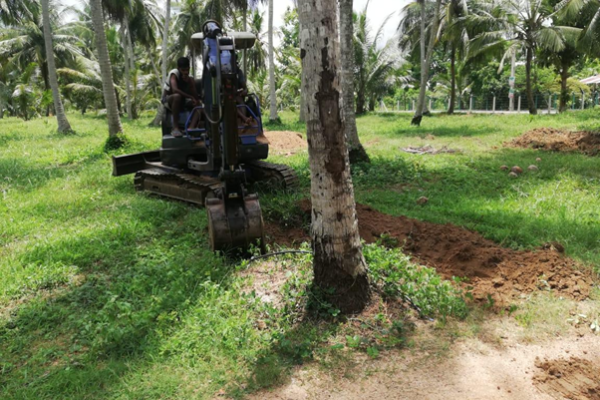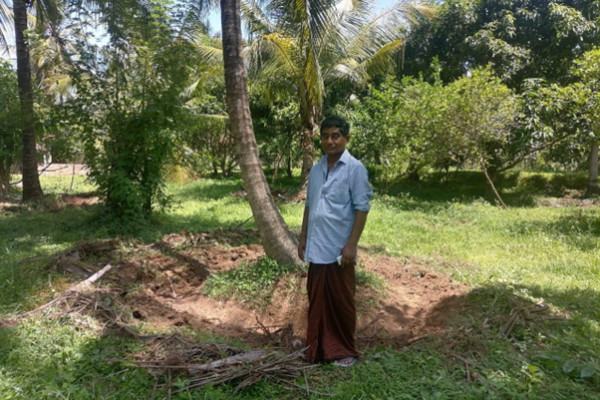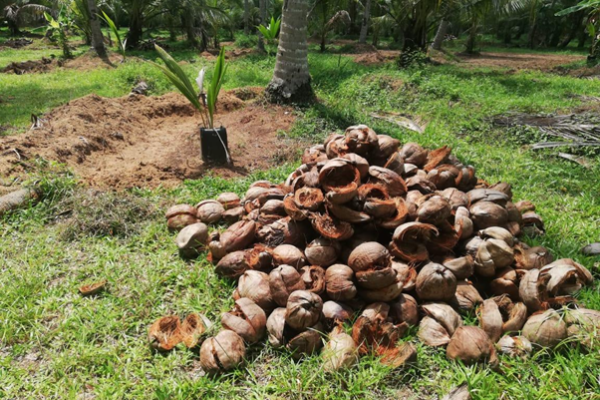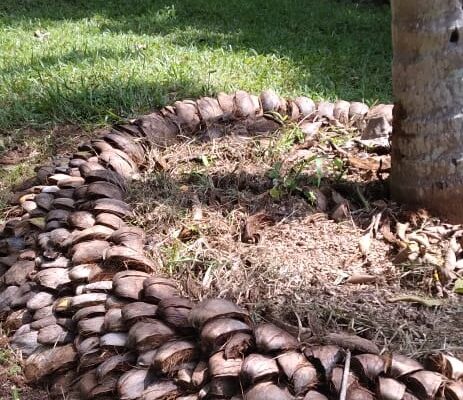Sri Lanka is today celebrated for its exceptional coconut products which are characterized by their distinct composition and remarkable efficiency. The coconut palm trees exhibit remarkable adaptability to various climates and offer an extensive array of benefits, including food, oil, fibre, medicinal properties, and industrial applications. They contribute valuable resources to produce a diverse range of products such as toilet soaps, shampoos, rubberized cushions, and shell powder among others. The coconut production sector occupies a prominent and unparalleled position worldwide. Hence coconut is considered by Sri Lanka’s largest e-commerce site, Kapruka to be in 4th place in cultivation and production at the global level.
The coconut industry in Sri Lanka has been facing challenges due to the impact of climate change. Changes in rainfall patterns, higher temperatures, shifting seasons, and increased pests have all affected the yield of coconut crops. It is important to introduce good Agricultural Practices to coconut farms in Sri Lanka to mitigate these effects and improve productivity. These practices will help enhance the quality and quantity of crops and make them more resilient to the changing climate conditions.
 Fairtrade NAPP has established 30 model farms across 3 Sri Lanka Coconut Small scale producer organizations by May 2023. This project is funded by Fairtrade Germany and was developed based on a climate study conducted to understand the current knowledge among the producers about the imminent impacts of climate change. Hence, project aimed to enhance farmers’ income by increasing the productivity of organic coconut. Simultaneously, it addresses the pressing issue of climate change by adopting good agricultural practices that are sustainable for coconut producers.
Fairtrade NAPP has established 30 model farms across 3 Sri Lanka Coconut Small scale producer organizations by May 2023. This project is funded by Fairtrade Germany and was developed based on a climate study conducted to understand the current knowledge among the producers about the imminent impacts of climate change. Hence, project aimed to enhance farmers’ income by increasing the productivity of organic coconut. Simultaneously, it addresses the pressing issue of climate change by adopting good agricultural practices that are sustainable for coconut producers.
To implement this, various tasks were undertaken –
1 Introduction and Education Program for Selected Farmers.
An introductory program was conducted by consultants to educate selected farmers on the initial activities. The program aimed to provide guidance and knowledge to the farmers regarding the project.
2. Implementation of Farmer Projects.
30 coconut farms were carefully selected from the coconut producing SPOs in Sri Lanka. Each farm designated a demonstration plot consisting of ½ acre or 32 coconut trees. The selected farmers then commenced working on their respective projects based on their chosen activities.
To support the farmers, NAPP facilitated the procurement of plants, materials, and equipment required for organic fertilizer production. The individual land extension was limited to 0.5 acres or 32 coconut trees. If the farmland exceeded this limit, farmers allocated a portion of it for the project. The purchased materials were reviewed and approved by the relevant expert.
3. Monitoring and Evaluation by NAPP Program Consultant.
Regular monitoring and evaluation were conducted by Fairtrade NAPP. These activities involved collecting crop data once every three months, in addition to the baseline data. Furthermore, experts were assigned to evaluate the progress of the farmers every six months.
4. Implementation and Evaluation of Activities.
The final stage focused on the implementation and evaluation of various activities. The evaluation process was carried out based on the following activities and their outcomes.
This project has demonstrated its direct positive impact on the livelihoods of 30 farmer families while indirectly benefiting other stakeholders within the coconut industry. The project helped small-scale producers to develop a strategy with recommendations and suggestions to bolster their resilience against the escalating and foreseeable impacts of climate change. By achieving these dual objectives, this initiative showcases the potential for transformative change within the coconut sector that paves the way for a sustainable future.









